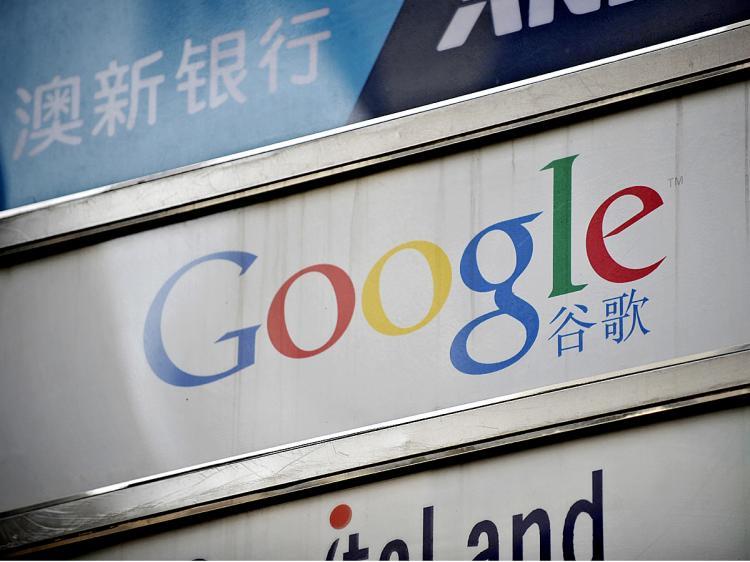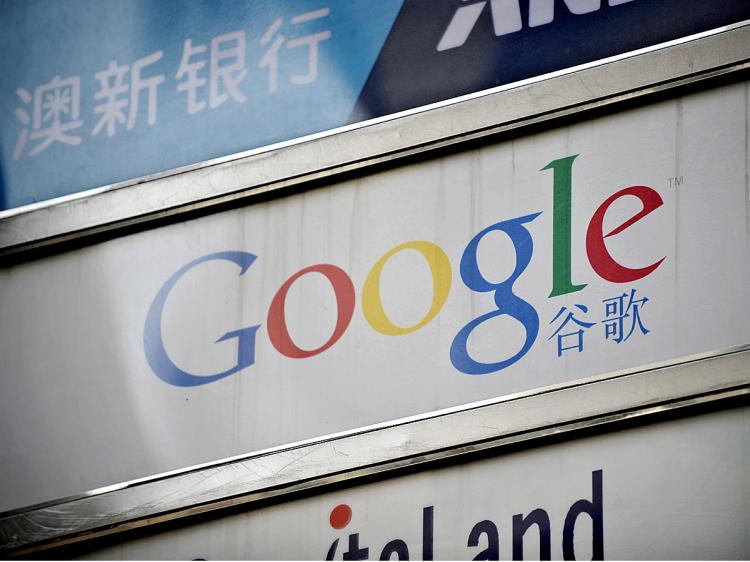NEW YORK—Google caused seismic waves in the Internet and business world on Jan. 12 by announcing that it was “no longer willing to continue censoring our results on Google.cn.”
Yes, you read that already. Google—the company that has promised to “do no evil”—appears to be finally living up to its promise by announcing that it was no longer willing to be in bed with the Chinese Communist regime to hurt the Chinese people by censoring information.
Wait, the moneybags say, no one has ever done this before! No company has ever stood up to the Chinese Communist regime! They cajole you with the carrot—the market of 1 billion Chinese and 300 million Internet users—and threaten you with the, “obey or lose your market” choice that no one has ever denied.
But Google has done it. And not only has it done it, it has done it in a most outstanding, defiant way: through a post on its official blog, signed by Mr. David Drummond, SVP, corporate development and chief legal officer.
Whether Google follows through or not is another matter. But at least it’s willingness to stand up and do what’s right needs to be applauded.
Those who are concerned that Google might lose its Chinese business have never understood the Chinese market and don’t know how the Chinese Communist regime operates.
Google said that it earns only 5 percent of its annual income from China.
Given how much money and effort it has put into the nation, the rewards are a far cry from what it could be earning if it was allowed to operate in a democratic nation with as many users.
In addition, Google’s ongoing tussle with the Chinese regime meant that it had to do a delicate dance with the regime’s leaders. Kowtowing to the regime did not win it any honors and the Communist regime only increased its pressure on the search giant and its criticism of the company.
In addition, Baidu—a homegrown search firm which is a favorite among Communist hard-liners and has the regime’s backing—has already captured a vast majority of the Chinese market, with no challange in sight for its market dominance. Estimates range from 58 percent to 77 percent, which leaves Google as a distant second in the Chinese market.
Even Yahoo, a company that has been willing to cooperate with the Chinese regime, aligned with Google’s decisions in wake of the cyber-attacks on its site.
In an e-mail statement that was posted on CNNMoney, a Yahoo representative stated, “We condemn any attempts to infiltrate company networks to obtain user information. We stand aligned with Google that these kinds of attacks are deeply disturbing and strongly believe that the violation of user privacy is something that we as Internet pioneers must all oppose.”
As for the stock market reactions, by the end of day after its shock announcement Google’s stock slid down just 0.57 percent, in line with the expected loss of revenue from its China operations.
Not bad, especially if you compare the company’s situation in 2008, when its stock price dropped steadily by 50 percent, shaving off around $90 billion dollars in market cap in one year. But since the beginning of 2009, Google’s stock price began to rise, again reaching its levels before the sharp drop.
Maybe the company has begun to do something right.
Even some in the notoriously stone-cold Wall Street are applauding at Google’s bold move.
Morris Mark of Mark Asset Management, a hedge fund that has invested in Google told CNNMoney, “From a PR view, Google just became one of the great good guys in the world.”
He added, “I can’t tell you how many clients have called me up to talk about this.”
Yes, you read that already. Google—the company that has promised to “do no evil”—appears to be finally living up to its promise by announcing that it was no longer willing to be in bed with the Chinese Communist regime to hurt the Chinese people by censoring information.
Wait, the moneybags say, no one has ever done this before! No company has ever stood up to the Chinese Communist regime! They cajole you with the carrot—the market of 1 billion Chinese and 300 million Internet users—and threaten you with the, “obey or lose your market” choice that no one has ever denied.
But Google has done it. And not only has it done it, it has done it in a most outstanding, defiant way: through a post on its official blog, signed by Mr. David Drummond, SVP, corporate development and chief legal officer.
Whether Google follows through or not is another matter. But at least it’s willingness to stand up and do what’s right needs to be applauded.
Business Concerns
Those who are concerned that Google might lose its Chinese business have never understood the Chinese market and don’t know how the Chinese Communist regime operates.
Google said that it earns only 5 percent of its annual income from China.
Given how much money and effort it has put into the nation, the rewards are a far cry from what it could be earning if it was allowed to operate in a democratic nation with as many users.
In addition, Google’s ongoing tussle with the Chinese regime meant that it had to do a delicate dance with the regime’s leaders. Kowtowing to the regime did not win it any honors and the Communist regime only increased its pressure on the search giant and its criticism of the company.
In addition, Baidu—a homegrown search firm which is a favorite among Communist hard-liners and has the regime’s backing—has already captured a vast majority of the Chinese market, with no challange in sight for its market dominance. Estimates range from 58 percent to 77 percent, which leaves Google as a distant second in the Chinese market.
Even Yahoo, a company that has been willing to cooperate with the Chinese regime, aligned with Google’s decisions in wake of the cyber-attacks on its site.
In an e-mail statement that was posted on CNNMoney, a Yahoo representative stated, “We condemn any attempts to infiltrate company networks to obtain user information. We stand aligned with Google that these kinds of attacks are deeply disturbing and strongly believe that the violation of user privacy is something that we as Internet pioneers must all oppose.”
As for the stock market reactions, by the end of day after its shock announcement Google’s stock slid down just 0.57 percent, in line with the expected loss of revenue from its China operations.
Not bad, especially if you compare the company’s situation in 2008, when its stock price dropped steadily by 50 percent, shaving off around $90 billion dollars in market cap in one year. But since the beginning of 2009, Google’s stock price began to rise, again reaching its levels before the sharp drop.
Maybe the company has begun to do something right.
Even some in the notoriously stone-cold Wall Street are applauding at Google’s bold move.
Morris Mark of Mark Asset Management, a hedge fund that has invested in Google told CNNMoney, “From a PR view, Google just became one of the great good guys in the world.”
He added, “I can’t tell you how many clients have called me up to talk about this.”






